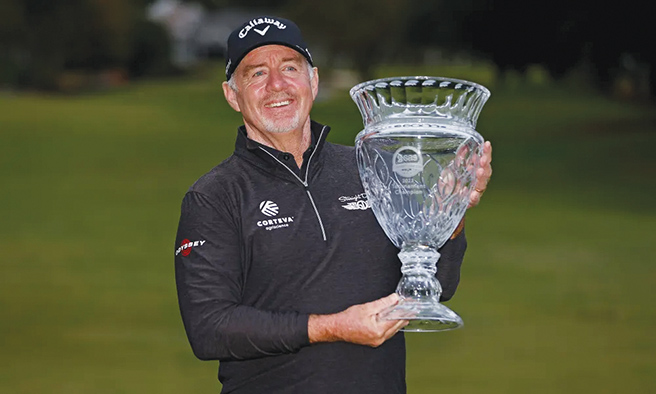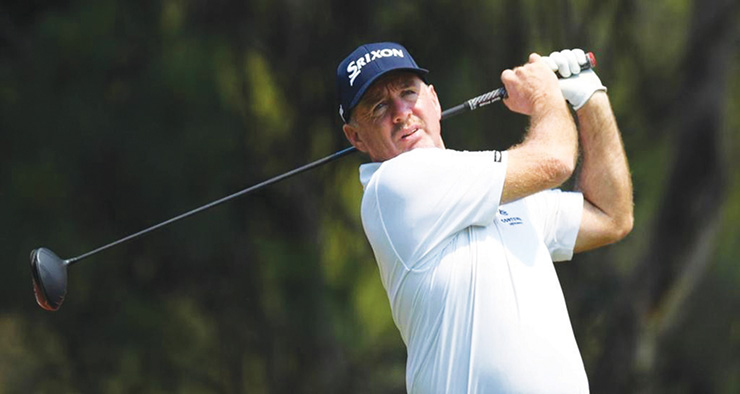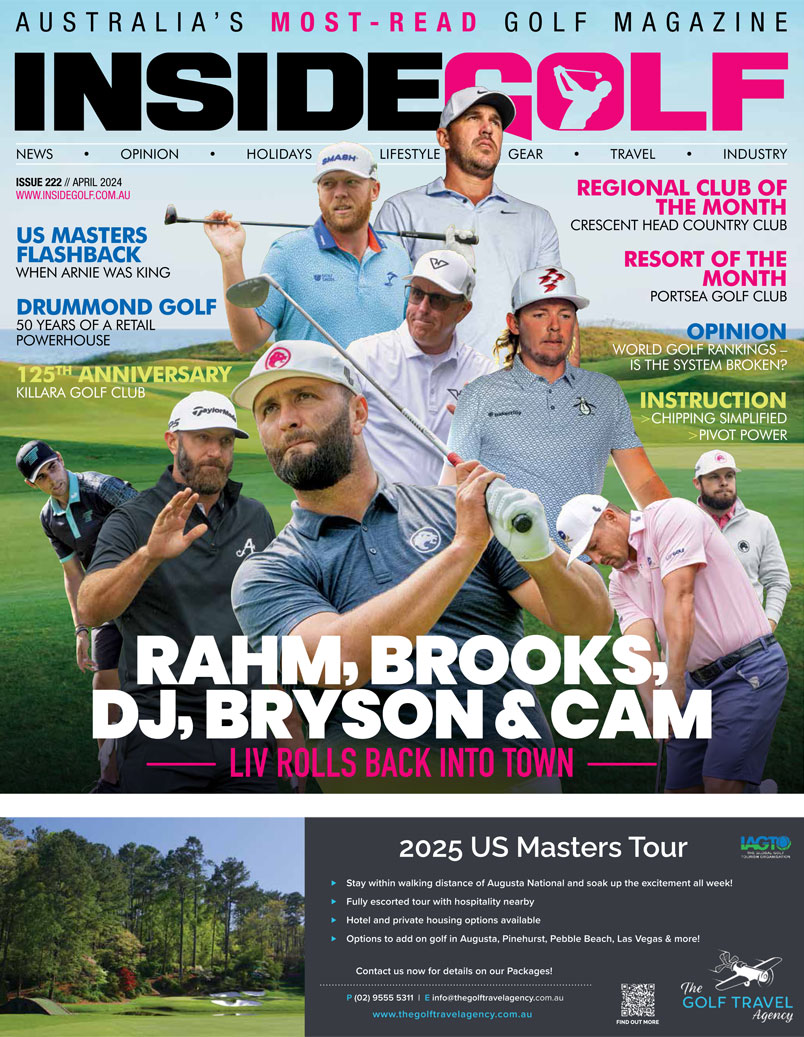
Queenslander Rod Pampling, a three-time PGA Tour winner recently grabbed his second win on the over-50 PGA Tour Champions. We sat down with the 54-year-old Pampling and talked about his win, his family, and what it meant to have a number of Aussies celebrate his latest victory.
How is life on the PGA Tour Champions and how did it feel to get your second PGATC win at the SAS Championship?
We’re all a little bit shorter off the tee obviously, but other than that, everyone else still plays phenomenal golf. To still get a win amongst these guys, it’s just awesome. It’s obviously great to get back to Hawaii with my win. You can now plan your year a bit better obviously, but getting a win against these guys, it doesn’t matter where it is, is just really satisfying. We’ve got eight hall of famers and there’s another six who are playing incredible golf. So, to put your nose in front on one of these weeks was just phenomenal.
What’s the camaraderie like on the PGA Tour Champions with your fellow Aussies?
It’s always good. There are a few times where we can have a sledge with each other, but it kind of goes over the top of some players’ heads. When I finished there were at least six or seven guys waiting for me. Alker, who obviously is a Kiwi but we all know that when we have Australia and New Zealand fight against each other it’s always intense but we’re friends afterwards. Then my good buddy Johnny Senden waited ‘til the end as well. That was just great to see him there and Richard Green and Stuart Appleby. It was phenomenal. It’s a fun time of our life to be in and to win it makes it a little extra special. For the next few days everyone was telling me congratulations. It doesn’t matter where you win, it’s hard. We have different issues to battle with than we did as younger guys – our body acts up here and there – but we all know what we have and it’s always special to win.
Your coaches have often said if you just take the emotions out of the game, we’d all be legends, right?
Exactly. I think it’s about just staying disciplined in your practice. Thankfully my wife as a clinical psychologist who has helped me over the years, dealing with situations. I wouldn’t say that I’m a great student but when it comes time, and like on Sunday it was great all day, I knew what I was doing out there, I was in control, I had the breathing down and the slow walking. Pretty much everything you do in sports, you do the opposite with golf and then you’ll be pretty close to what you need to do to keep calm. It’s not slow over the ball but slow to the ball, and then keeping it a nice and easy pace. For me, I always look up high and it helps you breath better versus looking down at the ground and kicking your toes and saying why me, poor me. You always look up and be confident and smile. It’s just little things like that which help you get rid of the negativity and helps you concentrate a little bit more.
You’re a dad of three in their teens, what’s that like for you?
It’s difficult being away so much still. But this is our job, this is what we’ve always done. That part is hard being on the road so much. You’d like to be at home a little bit more for the kids. You want to really be a father to them. You certainly miss out on a lot of things, but it’s kind of nice that they can still actually see that I can still play golf. They hadn’t seen a whole lot of me playing well, like when I won on the regular Tour. When I won the Sas Championship in October they were excited and they watched it on tv. Those things are great for them to share in.

Your son Sam plays college golf and loves the game, how hard was it as a professional golfing father to know when it was time to entrust a coach with his success and swing a few years back?
It’s extremely tough. Obviously, I’ve been around pro golf a long time and seen it all and so you try and tell (Sam) that. I think sometimes we can maybe push a little bit too much information on them and unfortunately, we were getting to log our heads so then it was time for us to find a coach. He was keen on the game,
so I said, ‘alright let’s start with my coach Alex Murray. So, we’re all on a three-way chat on text and it’s good, I sit back, and I try and let Alex and Sam work it out together. What I’m offering now is advice when he needs to know how to get around a specific golf course. The funny thing is if you tell your kid something he won’t listen, but when someone else tells them something they will listen (laughs). That’s where we were, whereas now three years on it’s been good. We can chat about different things now and I can explain what Alex means when Sam doesn’t understand it.
How often are you back home to Australia?
Covid shut us down for a couple years. We headed back in 2022 for a short period, but we’ll be going there for the Australian PGA and a couple of other Pro-Ams on the senior tour, but I just wanted to get a break by going to Australia and visit with friends and family that I hadn’t seen for a long time. Yep, I definitely will play my home course Royal Queensland. I’m looking forward to trying to take Cameron Smith down (laughs). I’ll try anyway. I know I’m a long way behind him in distance, but I’ve played there a few times and I know my way around.
How sentimental are you about your time on the PGA Tour when you look back now?
I think it’s just the people that you meet over the years. We’ve met so many great people and made so many good friends. You take away the wins from it all and that’s what it comes down to – it’s the people that you meet over the years – so many amazing people over the 20 years of golf, it’s been fantastic. They all make you feel welcome. It’s been a great place to come and play, and thankfully I played well enough to be out here for this long. It’s a journey of ups and downs and hopefully you can ride the ups as long as you can.
Garrett Johnston is a golf journalist based in Washington, DC. He hosts the Beyond the Clubhouse Podcast with players, caddies, coaches, and golf broadcasters.
https://podcasts.apple.com/us/podcast/beyond-the-clubhouse/id1522077847




![Win the golfing experience of a lifetime, at the Hawai‘i International Week of Golf, valued at $6,900 [Winner Announced] Win the golfing experience of a lifetime, at the Hawai‘i International Week of Golf, valued at $6,900 [Winner Announced]](https://www.insidegolf.com.au/wp-content/uploads/Hawaii-Comp-500x294.jpg)